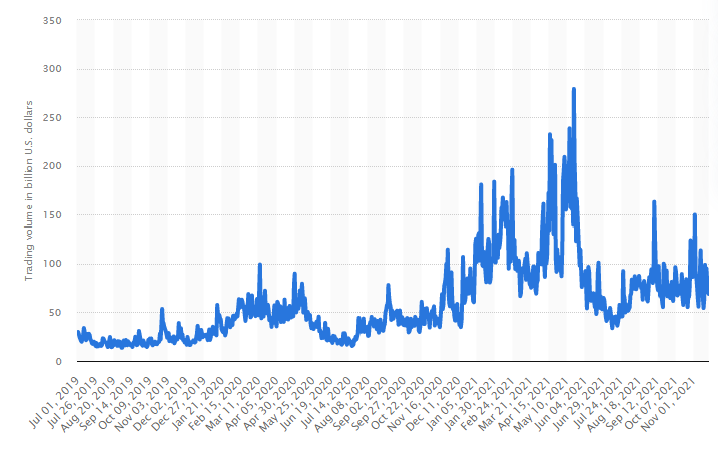
According to a Bloomberg report released Friday, hedge fund Fir Tree Capital Management, who have $4 billion in assets under management, made a large short bet against Tether (USDT), the stablecoin which is pegged to the US dollar.
One-to-one backing
With a market capitalisation of $80 billion, Tether is the world’s third largest cryptocurrency, behind only Bitcoin and Ethereum. The company has long been under fire surrounding accusations that $80 billion worth of reserves is not held to back the cryptocurrency one -to-one, an issue the company has repeatedly tried to clear up, but one which will not go away.
Indeed, I interviewed Tether CTO Paolo Ardoino last week following the announcement by the Swiss city of Lugano that Tether would be accepted as legal tender, and asked him whether the city had concerns over whether the cryptocurrency was fully backed:
CoinJournal: Did Lugano seek assurances on whether Tether is 100% backed, or were they content with what Tether has already released publicly on the matter?
Paolo Ardoino: Tether and the city of Lugano sat down and openly discussed the misconceptions about the company. Tether has publicly stated that it has ongoing conversations with regulators and law enforcement and has made valiant efforts in complying with all requests for transparency.
Fir Tree Capital Management remain among the sceptics, however, with Bloomberg’s report claiming that the company expects to receive a payoff within 12 months. The short is motivated mainly by Tether’s ties to Chinese real estate developers, with revelations of Evergrande Group’s finances last year causing turmoil. While originally spooking crypto markets, Tether came out to confirm that Evergrande Group commercial paper did not feature among the $24 billion in high-yield commercial paper that the firm owns. Evidently, this is a claim which Fir Tree does not believe.
Structure of the Short
While details about the structure of the short bet have not been made public, we can speculate how it may be constructed. Given the fact Tether is a stablecoin with no price volatility (i.e . it always trades at $1), the short is an unconventional one. Where typically a short bet presents unlimited downside (as the shorted stock or financial instrument theoretically has no limit to the upside), this is different, given Tether will not rise in price under any circumstances.
In truth, it is more likely to resemble the purchase of a credit default swap (CDS) on a debt obligation, the likes of which entered mainstream conscience amid the Great Financial Crash last decade (and were the subject of Hollywood blockbuster The Big Short). Fir Tree are likely paying a fixed spread to bet against Tether, and will receive a large payoff if Tether defaults (alternatively, if a default becomes more likely in the eyes of the market, the spread would widen on the contract and Fir Tree could cash out at a profit).
Asymmetric Payoff
Therefore, the hedge fund’s bet will have an asymmetric payoff schedule to the upside. Of course, if Tether default and they do receive their payoff, the cryptocurrency markets will likely implode. The centrality of Tether to the ecosystem at large cannot be overstated – the stablecoin clears over $50 billion of daily trade volume (Apple stock volume, for comparison, averages $98 million in daily volume over the last three months).
 Tether 24H volume 2019-2021, via Statista
Tether 24H volume 2019-2021, via Statista
Tether sceptics are nothing new, but this amounts to quite a high-profile move by Fir Tree, even if it is a low-risk, high-reward structure. The fund supposedly commenced shorting Tether last July, while Bloomberg also claims Fir Tree are considering setting up a separate fund for the sole purpose of shorting Tether, should there be enough client interest.
For the sake of crypto investors around the globe, the hope is that Tether are, in fact, what they claim to be – fully backed. If not, Christian Bale’s next role could be as a Fir Tree executive.

